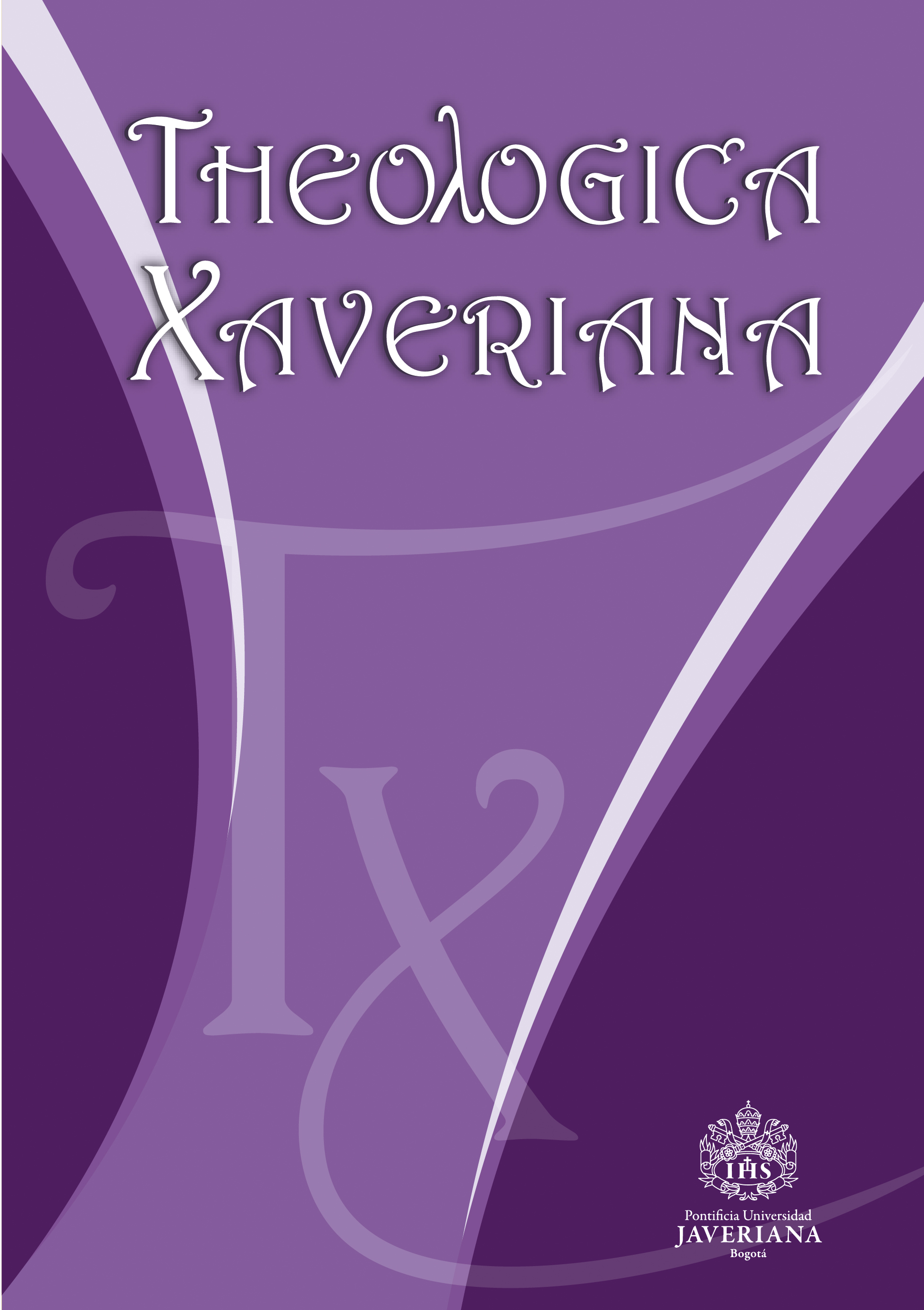Resumen
Ao analisar 1 Cor 1,26-31, este artigo procura destacar a força retórica do argumento paulino que afirma que a maior parte das pessoas a quem Deus chamou para formar a comunidade cristã em Corinto não são “sábios”, “poderosos” e “de família prestigiosa”, mas “as coisas loucas”, “as coisas fracas”, “as coisas desprezíveis” e “as coisas que nada são”. Deus, ao revelar a sua sabedoria e poder na cruz de Cristo, escolhe a fraqueza e loucura do mundo, destruindo os fundamentos do orgulho humano. O artigo demonstra também que as declarações de Paulo não podem ser desvinculadas do discurso de honra próprio da cultura grecoromana, a qual estava associada a poder, gênero e lugar social. Além da riqueza, associada às pessoas de status social elevado, havia uma hierarquia de valores que incluía linhagem familiar, conexões com Roma e sofisticação cultural.
Barclay, John M. G. “Thessalonica and Corinth: Social Contrasts in Pauline Christianity”. Journal for the Study of the New Testament 47 (1992): 49-74.
Berger, Klaus. Formas Literárias do Novo Testamento. São Paulo: Loyola, 1998.
Best, Ernst. “The Power and Wisdom of God”. In Paolo a una Chiesa Divisa (1 Co 14), editado por L. de Lorenzi, 9-39. Roma: Edizioni Abbazia di S. Paolo, 1980.
Clarke, Andrew D. Secular and Christian Leadership in Corinth: A Socio-Historical and Exegetical Study of 1 Corinthians 1—6. Leiden: E. J. Brill, 1993.
Conzelmann, Hans. 1 Corinthians. Philadelphia (PA): Fortress Press, 1975.
De Silva, David A. The Hope of Glory: Honor Discourse and the New Testament Interpretation. Collegeville (MN): The Liturgical Press, 1999.
Donahoe, Kate C. “From Self-praise to Self-boasting: Paul’s Unmasking of the Conflicting Rhetoric-Linguistc Phenomena in 1 Corinthians”. Tese de Doutorado, University of St. Andrews, St. Andrews (U. K.), 2008.
Fee, Gordon D. The First Epistle to the Corinthians. Grand Rapids (MI): W. B. E. Publishing Co.,1984.
Finney, Mark T. Honour and Conflict in the Ancient World. 1 Corinthians in its Greco-Roman Social Setting. London: Bloomsbury, 2013.
Friesen, Steven J. “Prospects for a Demography of the Pauline Mission: Corinth among the Churches”. In Urban Religion in Roman Corinth. Interdisciplinary Approaches, editado por Daniel N. Shovalter e Steven J. Friesen, 351-370. Cambridge (MA): Harvard University Press, 2005.
Hays, Richard B. First Corinthians. Louisville (KY): John Knox Press, 1997.
Heil, John Paul. The Rhetorical Role of Scripture in 1 Corinthians. Atlanta (GA): Society of Biblical Literature Press, 2005.
Horrell, David G. The Social Ethos of the Corinthians Correspondence. Interests and Ideology from 1 Corinthians to 1 Clement. Edinburgh: T & T Clark, 1996.
Kammler, Hans-Christian. Kreuz und Weisheit. Eine exegetische Untersuchung zu 1 Kor 1,10-3,4. Tübingen: J. C. B. Mohr, 2003.
Kwon, Oh-Young. 1 Corinthians. Reconstructing its Social and Rhetorical Situation. Eugene (OR): Wipf & Stock, 2010.
Litfin, Duane. St. Paul’s Theology of Proclamation. 1 Corinthians 1-4 and Greco-Roman Rhetoric. Cambridge (U. K.): Cambridge University Press, 1994.
Marshall, Peter. Enmity in Corinth. Social Conventions in Paul’s Relations with the Corinthians. Tübingen: J. C. B. Mohr, 1987.
Martin, Dale B. The Corinthian Body. New Haven (CT)-London: Yale University Press, 1995.
Meeks, Wayne A. Os primeiros cristãos urbanos. O mundo social do apóstolo Paulo. São Paulo: Paulus/Academia Cristã, 2011.
Mihaila, Corin. The Paul-Apollos Relationship and Paul’s Stance Toward Greco-Roman Rhetoric. Edinburgh: T & T Clark, 2009.
O’Day, Gail R. “Jeremiah 9:22-23 and 1 Corinthians 1:26-31: A Study in Intertextuality”. Journal of Biblical Literature 109/2 (1990): 259-267.
Okambawa, Wilfrid. Paulus und Sophia. Eine exegestisch-rhetorische Untersuchung zu 1Kor 1,10-31. Frankfurt am Main-Berlin: Peter Lang, 2002.
Pickett, Raymond. The Cross in Corinth. The Social Significance of the Death of Jesus. Sheffield: Sheffield Academic Press, 1997.
Pogoloff, Stephen M. Logos and Sophia. The Rhetorical Situation of 1 Corinthians. Atlanta (GA): Scholars Press, 1992.
Strüder, C. W. Paulus um die Gesinnung Christ. Identität und Entscheidungsfindung aus der Mitte von 1 Kor 1-4. Leuven: Peeters, 2005.
Theissen, Gerd. The Social Setting of Pauline Christianity. Essays on Corinth. Philadelphia (PA): Fortress Press, 1982.
Thiselton, Anthony C. The First Epistle to the Corinthians. Grand Rapids (MI): W. B. E. Publishing Co., 2000.
Voss, Florian. Das Wort vom Kreuz und die menschliche Vernunft. Göttingen: Vandenhoeck & Ruprecht, 2002.
Witherington III, Ben. Conflict and Community: A Socio-Rhetorical Commentary on 1 and 2 Corinthians. Grand Rapids (MI): Eerdmans, 1995.
Esta revista científica se encuentra registrada bajo la licencia Creative Commons Reconocimiento 4.0 Internacional. Por lo tanto, esta obra se puede reproducir, distribuir y comunicar públicamente en formato digital, siempre que se reconozca el nombre de los autores y a la Pontificia Universidad Javeriana. Se permite citar, adaptar, transformar, autoarchivar, republicar y crear a partir del material, para cualquier finalidad (incluso comercial), siempre que se reconozca adecuadamente la autoría, se proporcione un enlace a la obra original y se indique si se han realizado cambios. La Pontificia Universidad Javeriana no retiene los derechos sobre las obras publicadas y los contenidos son responsabilidad exclusiva de los autores, quienes conservan sus derechos morales, intelectuales, de privacidad y publicidad.
El aval sobre la intervención de la obra (revisión, corrección de estilo, traducción, diagramación) y su posterior divulgación se otorga mediante una licencia de uso y no a través de una cesión de derechos, lo que representa que la revista y la Pontificia Universidad Javeriana se eximen de cualquier responsabilidad que se pueda derivar de una mala práctica ética por parte de los autores. En consecuencia de la protección brindada por la licencia de uso, la revista no se encuentra en la obligación de publicar retractaciones o modificar la información ya publicada, a no ser que la errata surja del proceso de gestión editorial. La publicación de contenidos en esta revista no representa regalías para los contribuyentes.



